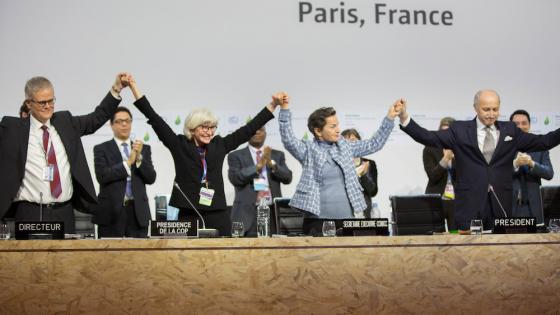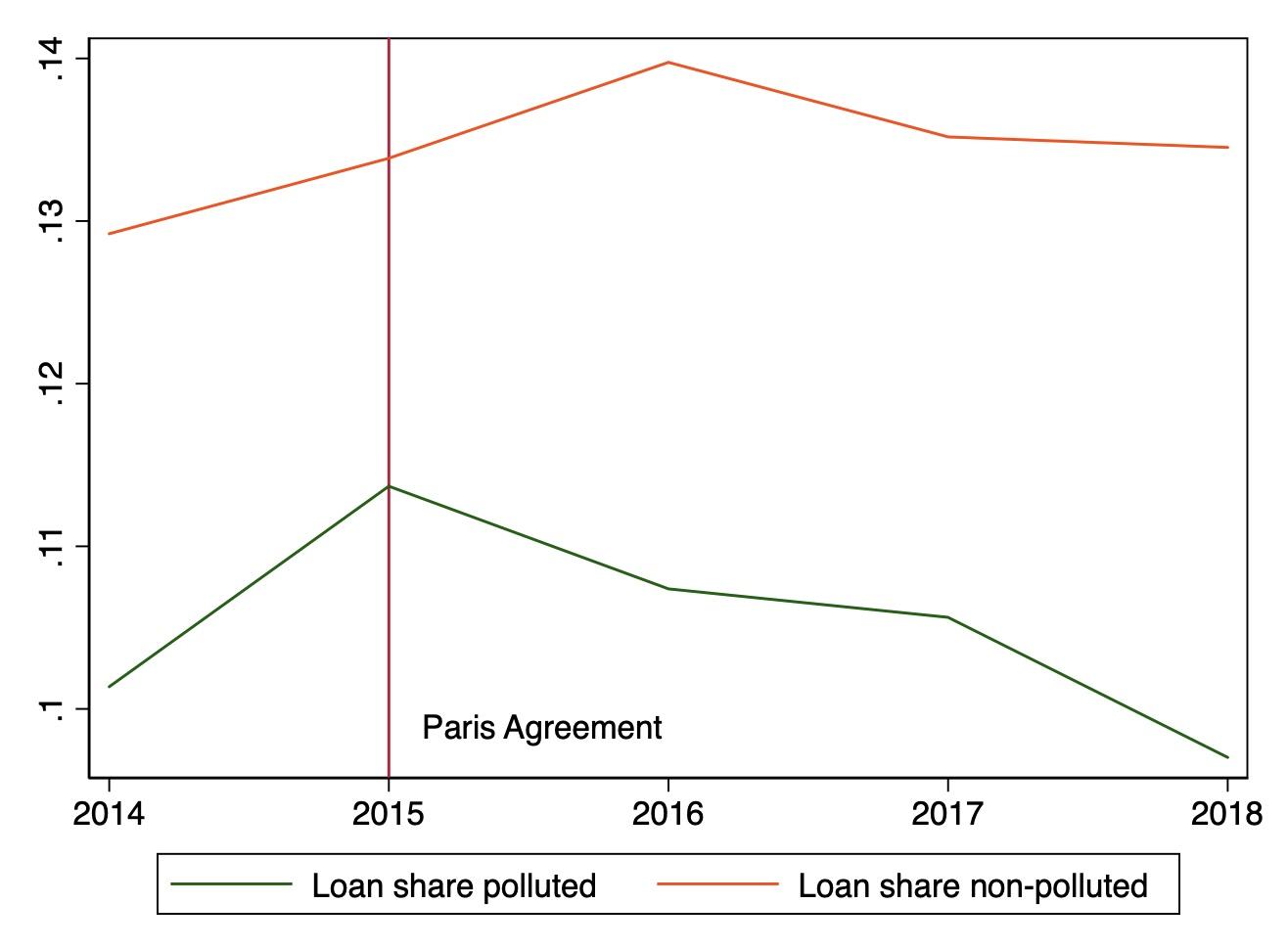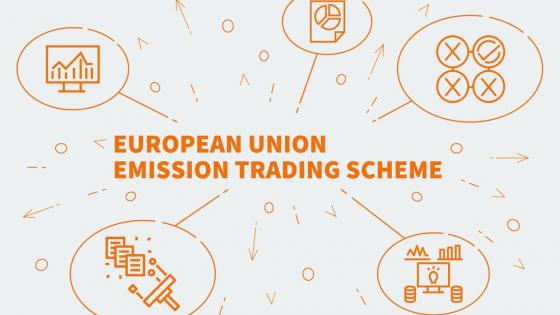Climate change poses major risks to the global economy. The Intergovernmental Panel on Climate Change (IPCC) concluded that the level of emissions observed since the mid-20th century will probably lead to global warming causing long-lasting changes, increasing the likelihood of a severe, pervasive and irreversible impact on people and ecosystems (IPCC 2018).
Policymakers have recognised climate change as a major and pressing threat (Carney 2015). In this vein, the Paris Agreement is the most significant global climate agreement to date. Signed in December 2015, it represents the first major comprehensive climate deal that explicitly recognises the need to “make finance flows compatible with a pathway toward low greenhouse gas emissions and climate-resilient development”. In the absence of legally binding emission targets and as countries are supposed to assess their own progress, moral suasion plays an important role.
The Paris Agreement and bank lending
As a major provider of credit, the banking sector is, potentially, a key player in these efforts. At the same time, these green initiatives are happening in a period in which banks themselves face new risks, some of them also linked to climate change. As a result, lending away from polluting firms might be very costly. In a recent paper (Reghezza et al. 2021) we ask whether climate-oriented regulatory policies affect the flow of credit towards polluting corporations. We do this by examining whether European banks changed their relative lending towards polluting firms following the Paris Agreement.
We focus on two main hypotheses. The first poses that the Paris Agreement might have encouraged banks to increase their lending to the more polluting firms. As banks are not directly legally constrained by the agreement, they might have a greater incentive to ‘cream off’ the market and step up their lending to more polluting firms while they are still allowed to do so. According to the second hypothesis, COP21 might have had suasion effects on banks, driving them to lend less to polluting firms, also in anticipation of more stringent climate risk-related policies, or increased awareness by banks of climate change related risks.
To this end, we matched granular information on European banks’ large exposures to individual counterparties – taken from supervisory reporting – to firm-level greenhouse gas emission intensities and employ several loan-level differences-in-differences (DiD) estimations. Preliminary graphical evidence already highlights a decline in the lending share towards polluting firms following the agreement (Figure 1).
Figure 1 Loan share towards polluting and less polluting firms, 2014-2018
We find that, European banks’ loan share towards more polluting firms decreased significantly – by about 3 percentage points – after the announcement of the Paris Agreement. Less profitable banks and those with lower credit quality drive our main findings.
Trump’s withdrawal
We then consider an added policy ‘shock’ in the opposite direction – namely, President Trump’s announcement of withdrawal from COP21. This shock allows to better interpret possible reverse patterns in banks’ lending decisions across climate-related policies. Interestingly, European banks’ loan share to more polluting US corporations also decreased (by around 2.4 percentage points) after President Trump’s June 2017 decision not to uphold the Paris climate commitment. We argue that this could be due to US banks stepping up their lending to polluting firms in the US following the agreement and thereby crowding out European lending to those firms.
Key messages
We contend that recent climate change initiatives, pushed European banks out of climate-sensitive sectors towards greener firms. Improved awareness of climate change-related risks, and the anticipation of more stringent policies are probably behind our findings. Our results underline the pivotal role of banks in the implementation of significant climate change policies.
Authors' note: The views expressed in this column are those of the authors only. They do not necessarily represent the views of the ECB, its Executive Board or the ECB management.
References
Carney, M (2015), “Breaking the tragedy of the horizon – Climate change and financial stability”, Speech at Lloyd’s of London, 29 September.
Reghezza A, Y Altunbas, C D Rodriguez d’Acri, D Marques-Ibanez and M Spaggiari (2021), “Do Banks Fuel Climate Change?”, European Central Bank Working Paper 2550.
IPCC (2018), Summary for policymakers. Global warming of 1.5°C. An IPCC special report on the impact of global warming of 1.5°C above pre-industrial levels and related global greenhouse gas emission pathways, in the context of strengthening the global response to the threat of climate change, Geneva.









